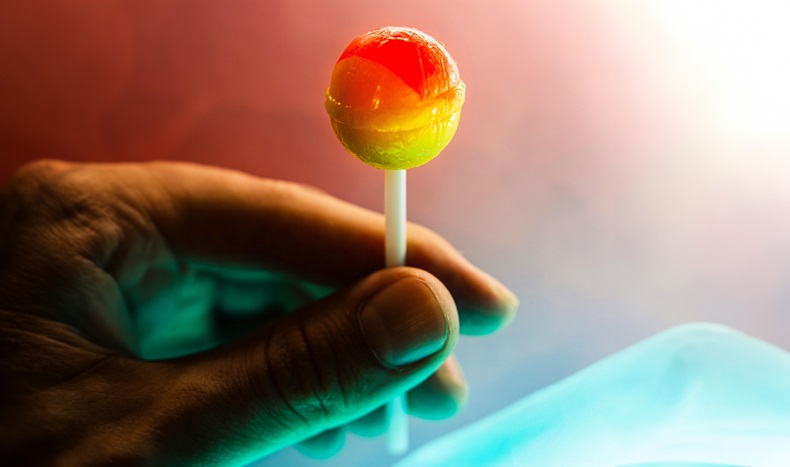Novel Smart Hydrogel Paves Way for New ‘Lollipop’ Mouth Cancer Diagnostic
Posted on 25 Mar 2024
Currently, the process of diagnosing oral cancer involves the uncomfortable step of inserting a flexible camera, attached to a tube, through the nose or mouth to take a tissue sample. This invasive procedure, which is both time-consuming and reliant on skilled professionals, could soon be replaced by a groundbreaking and patient-friendly alternative. A newly developed 'lollipop' diagnostic tool, created using innovative smart hydrogel technology, promises a quicker, more accurate, and less invasive way to diagnose mouth cancer, potentially leading to earlier detection for patients.
Researchers from the University of Birmingham (Birmingham, UK) are developing a prototype flavored ‘lollipop’ from a smart hydrogel they had developed previously. Smart hydrogels have a remarkable ability to soak up vast amounts of water while capturing larger molecules, like proteins, similar to how a net captures fish. This innovative diagnostic tool works by having patients transfer saliva into the hydrogel by sucking on the 'lollipop.' Subsequently, proteins indicative of the early stages of mouth cancer can be isolated by exposing the hydrogel to UV light, releasing the captured proteins for laboratory analysis. The biocompatible hydrogel concentrates and labels proteins with a fluorescent marker in just one step, making it ideal for diagnostics that aim to detect low-abundance proteins from small samples.

The hydrogel achieves protein capture via the fluorescent marker (fluorescein isothiocyanate or FITC), which is attached to the hydrogel by a photocleavable bond. Upon exposure to light, the protein, which is now attached to the fluorescein, gets released from the hydrogel. Early experiments demonstrated the hydrogel's ability to offer a concentration factor of 236 with a reference protein (streptavidin), and 50% of the proteins in the hydrogel were released after 100 seconds of exposure to UV light. This gel presents several advantages over current diagnostic methods by simplifying the process, requiring fewer steps than ELISA-based assays or preconcentration techniques, and operating effectively at room temperature. Its biocompatibility further allows for its application both in vitro and directly on patients, marking a significant advancement from traditional, invasive diagnostic procedures that demand medical expertise.
“Smart hydrogels have really exciting potential for diagnosing mouth cancer,” said Dr. Ruchi Gupta, Associate Professor of Biosensors at the University of Birmingham who developed the gel. “They can be easily molded into shapes as a solid to “catch” proteins in saliva, and we’re hoping that we can be the first to make a device which is much kinder for diagnosing mouth cancer for patients and easier for GPs to use.”
Related Links:
University of Birmingham














